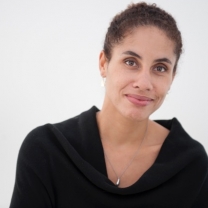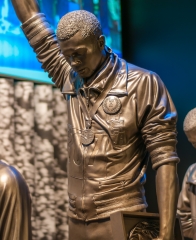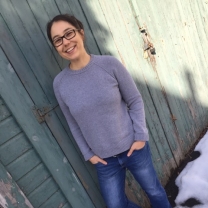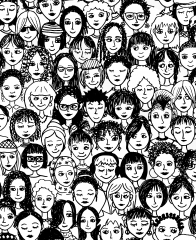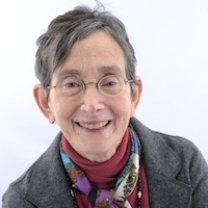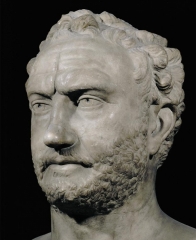 / The Stories that our Names Tell
Subscribe
/ The Stories that our Names Tell
Subscribe
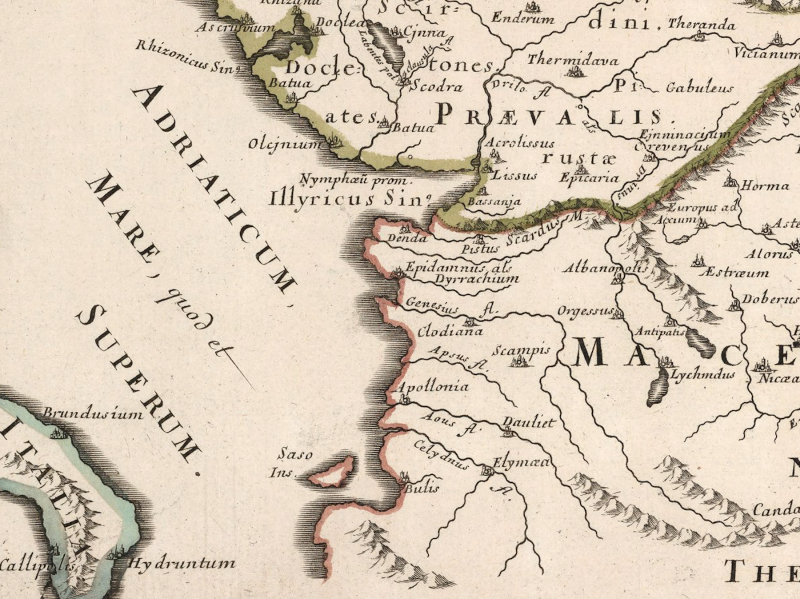
My name is Eniana Mustafaraj. People often have difficulty pronouncing it, and I don't blame them; it's a foreigner's name. I am an immigrant and I have been living less than 10 years in this country. At this time of travel bans for Muslims and rumors of a Muslim registry, should one be suspicious of everyone with a Muslim-sounding name like mine? Is my name the way to decide whether I am a decent person or not? Names make it easy to categorize someone by nationality, religion, or race. But binary categories (American or not, Christian or not, white or not) never provide answers. One needs to look beyond them to see the people, to learn their stories. So, I'll tell you the story of my name, which also tells the story of my native country, Albania. Eniana is an Illyrian name. Illyria, the place that Shakespeare chose as the location for his "Twelve Night" play, was a region in the Balkans, along the Adriatic Sea coast [see image above]. Not much has survived of the Illyrians' history and language, except for the names of their tribes and their kings. Their existence as a people is remembered in the first names that hundreds of thousands of people born in modern day Albania share: Ardiana, Genti, Teuta, Eniana, and the list goes on.
Illyria gradually disappeared in historical records as empires rose and fell over centuries. People and countries changed rulers, names, and religions many times: first the Roman Empire, and with it Roman Catholicism, then the Byzantine Empire with its Orthodox church, and finally the Ottoman Empire which brought Islam to the Balkans. Geography often dictated one’s religious affiliation. This is why in today's Albania the three beliefs continue to coexist, peacefully, as they have done for centuries. Albanians do not see their religious affiliation as a divider, being Albanian and speaking a unique common language brings us together.
There were mass conversions to Islam in most of the European countries that the Ottomans occupied. The Ottomans used different strategies to convert populations to Islam: taxes, conscription of children to serve in their military [1], and political favors. I don't know for which reason my ancestors decided to embrace Islam. How do you ask someone who lived in the 17th Century? What we know is that the first of them took the name Mustafa, a very common Arabic name, related to the Prophet Mohammad. The suffix -raj came more than 200 years later, a way to refer to family descent following the first Albanian Census at the beginning of the 20th century, which required everyone to choose permanent surnames.
When I was born, in communist Albania, religion had been abolished by the totalitarian regime. Houses of worship of all religions were destroyed and their spiritual leaders imprisoned. Albanians went back to using either Illyrian or European names for their children, instead of the religious names they had used in past centuries. While all of my uncles and aunts have religious first names: Mehmet, Hekuran, Ervehe, their children's names changed to Mirela, Krenar, and Odeta. And this is how I ended up with a hybrid name: a nod to the Illyrians, and a nod to the religion of my ancestors.
I know that my grandparents were religious, although they never talked to me about their faith. My grandfather always kept a book in one hand, and his beautiful praying beads (the "tespih") in the other. But he had tasted communist jail and was wise to not talk about religion to an indoctrinated, atheist-raised child. What I remember from him is his love for reading and for smoking raw tobacco with a pipe. I also remember his profound sadness. I cannot imagine what it means or feels like to wake up one day and have an entire life taken away by a political regime. His land, his home, and his religion were all taken from him.
Albania, the country, was in this hopeless place right after the World War I. Yugoslavia, Italy and Greece occupied it and divided it among themselves. There was to be no country for the Albanians. But then, President Woodrow Wilson intervened to protect Albania’s sovereignty [2]. A poor, predominantly Muslim country, which had established its first government only a few years prior, was being saved by an American president, because it was the right thing to do. America is always at its best when standing up for the rights of all the people, everywhere in the world.
That's the story that my name tells. I would love to hear the stories of your names. Please share them with us on Facebook.
1. Albanians under Ottoman Rule (http://countrystudies.us/albania/18.htm)
2. Albania's Reemergence after World War I (http://countrystudies.us/albania/25.htm)
Eni Mustafaraj is an assistant professor of computer science at Wellesley College. She uses data-driven techniques to study web-based socio-technical systems such as Google, Twitter, or Facebook, with the goal of understanding how humans and algorithms are affecting one another in increasingly complex ways.
Photo Credit: David Ramsey, via Ramsey Map Collection, 2017.

